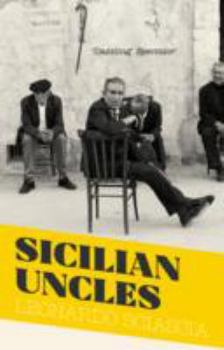Sicilian Uncles
Select Format
Select Condition 
Book Overview
No Synopsis Available.
Format:Paperback
Language:English
ISBN:1847089267
ISBN13:9781847089267
Release Date:January 2014
Publisher:Granta Books
Length:208 Pages
Weight:0.35 lbs.
Dimensions:7.8" x 0.5" x 5.1"
Related Subjects
Contemporary Crime Fiction Humanities Literature Literature & Fiction Thriller & SuspenseCustomer Reviews
1 rating
Four slices, Sicilian
Published by Thriftbooks.com User , 16 years ago
When I was a kid, growing up in Queens, New York, I would walk into a pizza place and ask for a slice of pizza. The response was invariably "plain or Sicilian?" A plain slice (or a Neapolitan) is the traditional triangular slice of pizza with a thin crust and thin layer of dough as the base. A Sicilian pizza on the other hand was square and much larger than a regular pie. It had a bigger crust and a much thicker layer of dough on the base. Basically, it was an earthier, more basic piece of pizza. It is simple food that fills the belly. Leonardo Sciascia's "Sicilian Uncles, Four Novellas" consists of four earthy slices of Sicilian life. Although these stories represent some of Sciascia's earliest writing they are very satisfying. By the time you are done reading them you will have developed a real (if narrow) feel for the world Sciascia grew up in. The first story, "The American Aunt" is set in a village in Sicily at the conclusion of World War II. It looks at the dislocation of life in Sicily through the eyes of a young man and his family. Former partisans vie with former supporters of Mussolini as Italy and Sicily seek ways to adapt to the post war world. The heart of the story involves the arrival of the boy's American aunt, spreading $5.00 bills and food packages to family members while pushing them back into the arms of the Church and away from the `dreaded Communists". "The Death of Stalin" takes us up to 1953, the year Stalin dies. It looks back at Stalin's life through the eyes of a local Communist supporter. We see rationalization at the Hitler/Stalin Pact and the party purges, then on through the war years and the subsequent denunciation of Stalin at the 20th Party Congress. "Forty-Eight" describes the historical alliance among the landed gentry, the church and the military as the political unrest of 1848 (including calls for reform and liberation by Garibaldi) plays itself out in a small village far from Rome, Berlin, Vienna, or Paris. Finally, "Antimony" involves a Sicilian peasant who joins the Italian army to fight with Franco's army during the Spanish Civil War. Leonardo Sciascia's stories about his native place, Sicily, are filled with despair and fatalism. He writes of a place where strong notions of family, corruption as usual, and an acceptance of organized crime as a fourth branch of government sets the stage for his stories. These stories take `big-picture" events, wars, civil wars, and revolutions, and place them in small village. Sciascia's protagonists are not princes and potentates who set these events in motion but, rather, the peasants who are buffeted by each and every political and social wave that washes through their village. That may sound grim but Sciascia's writing makes the experience pleasurable. He has a keen eye and doesn't waste words. Each story is well written and easy to read. "Sicilian Uncles" is out of print. I spotted this volume at my local library and checked it out. If yo





